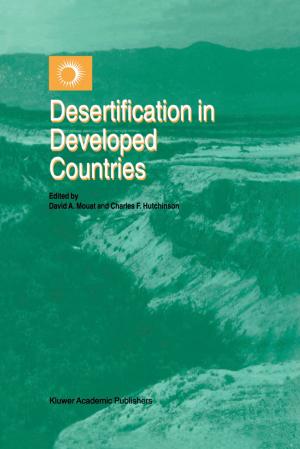Assessment of the Nuclear Programs of Iran and North Korea
Nonfiction, Science & Nature, Technology, Nuclear Energy, Social & Cultural Studies, Political Science, Government, Social Policy| Author: | ISBN: | 9789400760196 | |
| Publisher: | Springer Netherlands | Publication: | March 1, 2013 |
| Imprint: | Springer | Language: | English |
| Author: | |
| ISBN: | 9789400760196 |
| Publisher: | Springer Netherlands |
| Publication: | March 1, 2013 |
| Imprint: | Springer |
| Language: | English |
When we are looking at proliferation cases, there are a number of lessons – positive and negative – learnt. First, facts reported by the IAEA are essential for the international community in assessing the compliance and risks of possible clandestine activities. Second, the IAEA verification scheme is biting when it fully exercises its verification rights, and when it is provided with the requisite cooperation. Third, when countries face questions raised by the IAEA, those that chose to turn the course and / or cooperated to remove concerns and ambiguities resolved their nuclear dossiers in a satisfactory manner and fairly swiftly. Fourth, when states adopt the course of confrontation, as are currently the cases with Iran, Syria and North Korea, the situation becomes more complicated and more difficult to resolve. Fifth, dragging non-compliance and challenging of the authority of the United Nations Security Council and the IAEA Board of Governors erodes the international non-proliferation regime.
This book addresses two proliferation cases, Iran and North Korea providing extensive snapshots on the currently known nuclear programs, and analyses failures and weaknesses of past verification activities, and makes innovative suggestions for ways forward.
When we are looking at proliferation cases, there are a number of lessons – positive and negative – learnt. First, facts reported by the IAEA are essential for the international community in assessing the compliance and risks of possible clandestine activities. Second, the IAEA verification scheme is biting when it fully exercises its verification rights, and when it is provided with the requisite cooperation. Third, when countries face questions raised by the IAEA, those that chose to turn the course and / or cooperated to remove concerns and ambiguities resolved their nuclear dossiers in a satisfactory manner and fairly swiftly. Fourth, when states adopt the course of confrontation, as are currently the cases with Iran, Syria and North Korea, the situation becomes more complicated and more difficult to resolve. Fifth, dragging non-compliance and challenging of the authority of the United Nations Security Council and the IAEA Board of Governors erodes the international non-proliferation regime.
This book addresses two proliferation cases, Iran and North Korea providing extensive snapshots on the currently known nuclear programs, and analyses failures and weaknesses of past verification activities, and makes innovative suggestions for ways forward.















